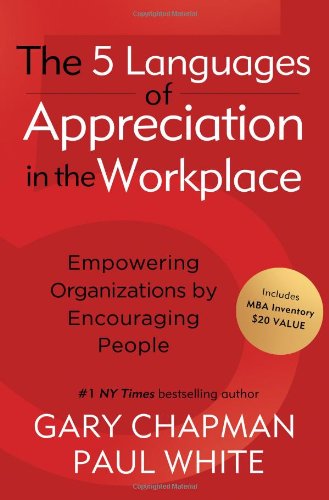 Photo Credit: Harvard Business Review
Photo Credit: Harvard Business Review
It’s Monday morning. Who’s retiring from your team this week? Who retired last week? Who do you see around you at work today? Do they know they matter to you? To your organization? How has their value been reflected back to them? What can you do today to show your appreciation, especially to that one who is retiring? Sorry for all the questions. They’re bouncing in my head. Let’s talk about it.
[This might be a little awkward if you’re the one retiring, especially with reluctance…or if you’re not retiring but question your own relevance or value at work lately. You may not be able to fix much of what your experience has been, but you can set your own “finishing well”…whether it’s official in a few days, or in several years.]
From the sidelines, I am watching a very strange phenomenon this week. On Friday, hundreds of employees in one local company will retire. It relates to a measured downsizing necessary to keep the company operational financially. The downsizing is a much kinder and more valuing option than layoffs. Still, there are huge ramifications for those leaving as well as for those who remain, in the months/years ahead…without them.
How does an organization go about honoring hundreds of retirees? Well…apart from the numbers, it’s in the same way you would honor one. Bill Peel offers a really helpful array of articles on appreciation in his Make Mondays Meaningful, quoting from C.S. Lewis and the Harvard Business Review. This is a good place to start.
As I was thinking of the challenge for a company’s leadership and the human resources department to honor so many retirees, a little book came to mind. It’s The 5 Love Languages by Gary Chapman. Then I discovered he and Paul White wrote a follow-up book entitled The 5 Languages of Appreciation in the Workplace.
Photo Credit: Amazon.com
Chapman and White describe five languages of appreciation (see in next paragraph). How we receive meaningful appreciation varies from person-to-person. Therefore we must attempt to personalize our expressions of gratitude to be effective. In a situation where a large number of folks are retiring, or in plan to build a workplace culture of appreciation, a comprehensive “shot-gun” approach may be warranted. If your aim is authentic honoring of your personnel, the extra work and creativity will be well-applied.
Maria Elena Duron, in her US News piece on workplace appreciation describes Chapman’s & White’s 5 Languages:
- Words of affirmation. Reassuring words (“thank you for your input,” or “great job on the presentation”) that serve to motivate and show gratitude to team members.
- Quality time. Going out of your way to spend a little more time with team members, discussing the topics that are relevant and important to them.
- Acts of service. Your words of gratitude could land on the deaf ears of team members who would rather receive help finishing a project or assignment. Going out of your way to lend a hand means more to such people than mere praise.
- Tangible gifts. Lots of people appreciate tangible gifts. The important thing here is to make sure the tangible gift is something the person values in their life outside of work, like a jersey of their favorite college football team or a coffee mug with their favorite cartoon character on it.
- Appropriate physical touch. Some members respond well to appropriate physical touch, like high-fives, handshakes, fist bumps and pats on the back. You’ll see this in sports, but it also translates well to the work environment.
Delbert Terry (speaking on The 5 Languages of Appreciation in the Workplace) gives this charge to both supervisors and colleagues:
“In order to appreciate, you MUST initiate.”
- For appreciation to be effective, it must be individualized and delivered personally.
- Appreciation needs to be viewed as valuable to the recipient.
- Employees are more likely to “burn out” when they do not feel appreciated or emotionally supported by their supervisors.
- When leaders actively pursue communicating appreciation to their team members, the whole culture improves.
Dr. Terry acknowledges: “There are challenges that get in the way of effectively expressing gratitude to our colleagues. Some are internal issues attitudes, thoughts, and beliefs. Other challenges are external and relate to corporate structures and procedures. These challenges need to be faced realistically, but they can be overcome.”
Challenge #1: Busyness
Challenge #2: Communicating appreciation is not important for you organization
Challenge #3: Feeling overwhelmed with existing responsibilities
Challenge #4: Logistical issues that interfere with the process of sharing appreciation for others. Varying schedules, working on different projects…often make it difficult to express appreciation to certain coworkers.
Challenge #5: Personal discomfort with appreciation *
*The 5 Languages of Appreciation in the Workplace – presented by Delbert Terry (pdf)
In honoring retirees and setting a workplace culture of appreciation, it is never too early and [hopefully] never too late.
As I think of the mammoth task of trying to honor hundreds of retirees in one fell swoop, I am both overwhelmed by and grateful for those who undertake such a task. How do you orchestrate such a celebration of so much human history and accomplishment? You do your best with gracious words, team parties, a speech from a charismatic leader, a slideshow of faces we love, and maybe shrimp and petits fours. I wouldn’t miss it, for sure.
The one thing I hope happens and it’s the hardest thing to make happen is that we capture the story of these lives. History, experience, a personal witness are so valuable and should be preserved somehow. Storycorps is an organization that gives us opportunities to record stories of people’s lives who have made a difference in ours. What a great way to honor those who have gone before us, so that we and future generations can continue learning from them.
Finally, we know something of the importance of authentic appreciation because of the character of God Himself. “Well done, good and faithful servant” are words any of us as Christ-followers hope to hear one day…from God, who knows us best. We reflect that deeply personal “divine compliment” when we truly honor one another. Photo Credit: carp.ca
Photo Credit: carp.ca
Applying Appreciation Language in the Workplace – Maria Elena Duron, U.S. News & World Report
Why Appreciation Matters So Much by Tony Schwartz, Harvard Business Review
How to Give a Meaningful “Thank You” – the Power Thank You by Mark Goulston, Harvard Business Review
StoryCorps.org – “We Believe Every Story Counts”
The 5 Love Languages: The Secret to Love that Lasts by Gary Chapman
 These friends are not retiring…transitions and send-offs are also opportunities to say (and show) “You matter.” #SaveOurHistory
These friends are not retiring…transitions and send-offs are also opportunities to say (and show) “You matter.” #SaveOurHistory

